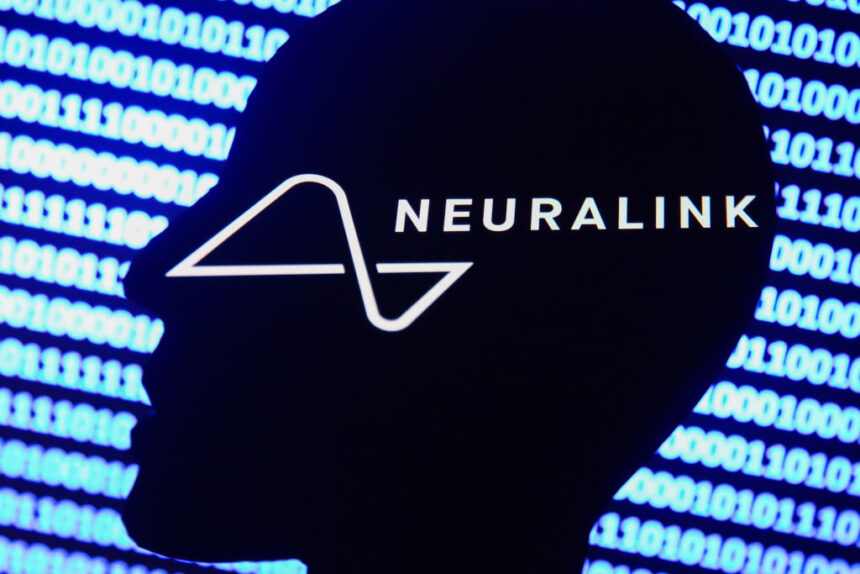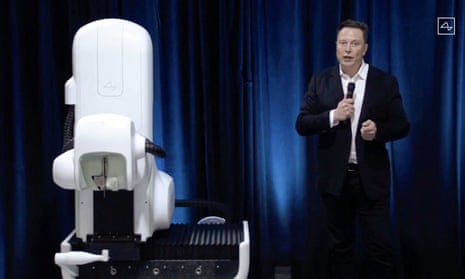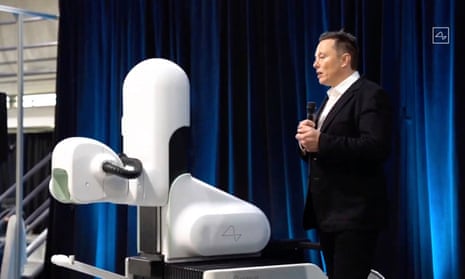Neuralink’s Innovative Brain-Implant Trial Receives Green Light for Human Recruitment

Neuralink’s Innovative Brain-Implant Trial Receives Green Light for Human Recruitment
In a groundbreaking development for the world of neuroscience and technology, Elon Musk‘s pioneering venture, Neuralink, has secured the crucial approval needed to begin recruiting human participants for its highly anticipated brain-implant trial. This pivotal moment marks a significant step forward in the field of brain-computer interfaces (BCIs), offering hope to individuals grappling with paralysis. Neuralink‘s ambitious six-year study aims to test their experimental device, a technological marvel designed to bridge the gap between the human brain and artificial intelligence.
Neuralink, founded by the enigmatic entrepreneur Elon Musk, has been at the forefront of BCI innovation and garnered substantial attention for its audacious promises. Musk’s grand vision revolves around the creation of an all-encompassing brain computer interface, intended to empower humanity to keep pace with the relentless advancements in artificial intelligence. However, such bold claims have not been without their fair share of skepticism and ethical concerns, particularly among neuroscientists and other experts in the field.
The journey towards this remarkable milestone has not been without its challenges. Just last year, Neuralink encountered a setback when the Food and Drug Administration (FDA) denied their request to fast-track human trials. Yet, the recent announcement reveals that Neuralink has successfully navigated the regulatory landscape, securing an investigational device exemption (IDE) from the FDA, paving the way for the initiation of clinical studies. Notably, the FDA has chosen to keep the details of how its initial concerns were resolved undisclosed.

Unlocking the Potential of Brain-Computer Interfaces
At its core, Neuralink’s mission revolves around unlocking the vast potential of brain-computer interfaces. These remarkable devices have the potential to revolutionize the lives of individuals suffering from paralysis and other neurological conditions. By establishing a direct connection between the human brain and external technology, BCIs have the power to restore lost functionalities and provide newfound independence to those in need.
The central concept behind Neuralink’s technology is the development of an implantable device that can seamlessly interface with the human brain. This device is designed to record and analyze neural signals, translating thoughts and intentions into actionable commands for external devices, such as computers or prosthetic limbs. For individuals with paralysis, this could mean regaining control over their bodies and, in essence, regaining a semblance of normalcy in their daily lives.
The Road to Regulatory Approval
Neuralink’s journey to receive approval for human trials has been a rollercoaster ride, punctuated by both setbacks and breakthroughs. The FDA’s initial rejection of their request for fast-tracking raised questions about the safety and efficacy of the experimental device. However, Neuralink persevered, working diligently to address these concerns and meet the rigorous standards set by regulatory authorities.
The pivotal moment came in May when the FDA granted Neuralink the investigational device exemption (IDE). This critical milestone is a testament to the company’s dedication to advancing the field of neurotechnology while adhering to the strictest safety and ethical standards. The IDE allows Neuralink to move forward with its human trials, an essential step towards realizing its vision of helping individuals with paralysis regain control of their lives.
A Beacon of Hope for Paralysis Patients
The approval to recruit human participants for Neuralink’s brain-implant trial represents a ray of hope for those living with paralysis. For individuals who have long yearned for the ability to regain control of their bodies, this technological advancement offers the promise of a brighter future. The six-year study will be closely watched, not only by those directly impacted but also by the broader scientific community and society at large.
One of the key aspects of the trial is the selection of participants. Neuralink is actively seeking individuals living with paralysis to take part in the study. This inclusive approach reflects the company’s commitment to addressing real-world challenges and underscores the potential for BCIs to transform lives.

The Ethical and Scientific Implications
While the approval of Neuralink’s trial is cause for celebration, it also raises important ethical and scientific questions. The intersection of technology and the human brain is a realm fraught with complexities and uncertainties. As Neuralink moves forward, it must navigate these challenges with the utmost care and transparency.
Ethical concerns have loomed large over the development of BCIs. Questions regarding the protection of participants’ rights, the potential for misuse of neurotechnology, and the long-term implications of brain implants are just a few of the issues that demand careful consideration. It is imperative that the ethical dimensions of this research remain at the forefront of discussions surrounding Neuralink’s groundbreaking work.
Additionally, the scientific community will be closely monitoring the progress of the trial. The results of this study could have far-reaching implications not only for individuals with paralysis but also for the broader field of neurotechnology. Success in this endeavor could pave the way for further advancements in BCIs and open doors to new possibilities in human-computer interaction.
The Vision of Elon Musk
Elon Musk’s involvement with Neuralink has undoubtedly been a driving force behind the company’s high-profile status. Musk, known for his ambitious and visionary projects, has made bold claims about the potential of BCIs to augment human capabilities. He envisions a future where BCIs not only restore lost functions but also enhance human cognition, enabling individuals to compete with artificial intelligence on a level playing field.
While Musk’s vision is undeniably captivating, it also invites scrutiny. Skepticism and caution are natural responses to claims of such magnitude. However, it is precisely this audacious ambition that has propelled Neuralink to push the boundaries of what is scientifically and technologically possible.

Looking Ahead
As Neuralink embarks on this groundbreaking human trial, the world watches with bated breath. The convergence of technology and neuroscience holds the promise of transforming lives and reshaping the future. While the challenges are considerable, the potential rewards are equally substantial.
In the coming years, as the six-year study unfolds and the data accumulates, we may witness the dawn of a new era in neurotechnology. The results of Neuralink’s trial will not only impact the lives of those with paralysis but also shape the trajectory of scientific inquiry into the mysteries of the human brain.
As we stand on the threshold of this exciting journey, one thing remains clear: the fusion of human ingenuity and cutting-edge technology has the power to transcend the limits of human potential, offering hope and inspiration to us all.




